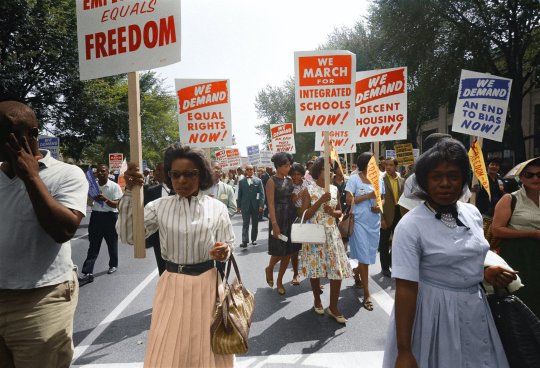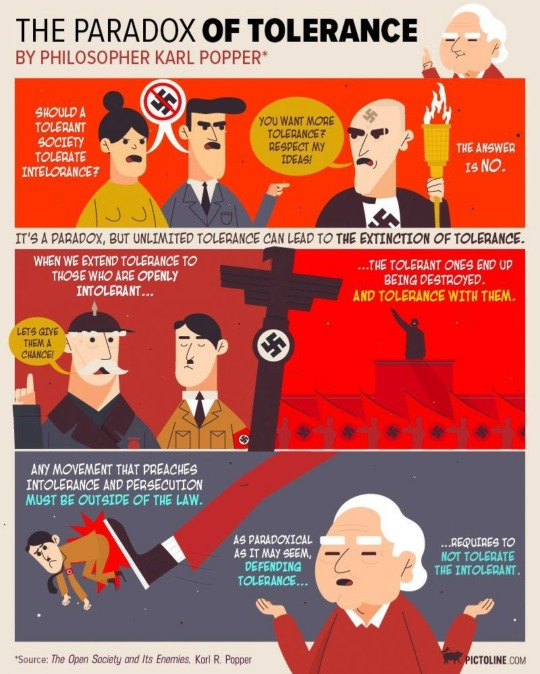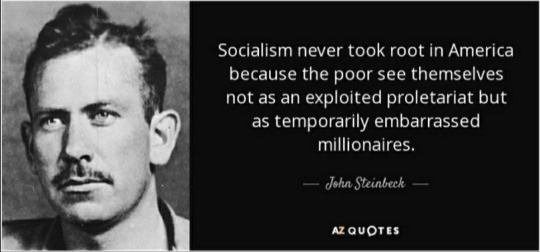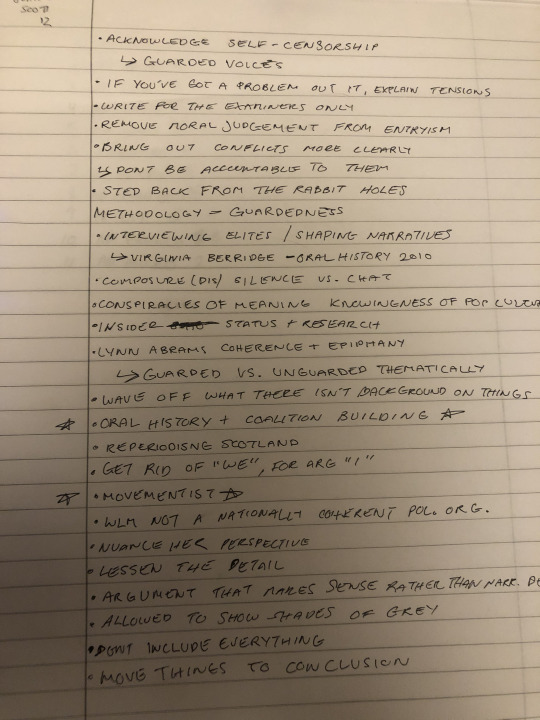#i am already reading 2 books and one is dense economic theory so like...
Text
I gotta stop reading about this manga and just read this damn manga
#i am already reading 2 books and one is dense economic theory so like...#uhhhhh#aib treat once i've finished ig#shitty text post#(the economic theory is probably not that dense it just turns out i am bad at economics)
1 note
·
View note
Text




Credit: Jordan J. Lloyd
I've been trying to dive deeper into politics, discover the genuine roots of our society, the origins of our beliefs, and the consequences of our economic system. It's a big, long, wide journey and through multiple sources such as articles, images, videos and multiple social media platforms, I've been trying to educate myself more on important subjects.
Communism, capitalism, libertarian, conservative, the left, the right, the history, the impact. It is scary to commit to everything because once you start, you simply cannot stop, once you start waking up your conscience about the horrible reality, the lies, the truths, you cannot put it back to sleep. You can't just ignore prejudice, especially when you're extremely conscious of it's omnipresence. I have continually tried to build my own opinions all while actively creating bullet point arguments in my mind because I just know that at some point I will have to defend my thinking, and I want to do it right.
Now, I am so far from being enlightened, I am a beginner and an amateur in all of those themes, but I am trying, which is the only way to start and grow.
So to tell you about my beliefs, I am a militant human rights activist, I believe in equal opportunities regardless of gender identity, sex, religion, sexual orientation, ethnicity, race and disability. This is a fact, not a belief, but the system was obviously not built to protect all people, its wasn't created to serve everyone equally but to grant a privilege to some and harm others. The current state of the world is not a slip, an accident or a misfunction of our brilliant system but a testament of it operating remarkably well. I believe that equity leads to equality, and I believe that we cannot "fix" methodologies that were immorally created with absolutely no honor whatsoever. I believe in reproductive rights, in legal, safe abortions for anybody who needs one. I believe in the decriminalization of marijuana. I believe that the death penalty is a despicable punition that should be banned as soon as possible. I believe in defunding the police and the military. I believe that it is a shame that I even have to talk about police brutality, I don't want to have to say that it is one of the most horrible things our world has originated, I feel extremely dense when I do because it seems like the most obvious certitude and I refuse to believe that this is a controversial statement. I believe that everything I have just stated, along with many more, isn't anything grand but the bare minimum, the bar is low, and yet, we still have the fight for basic human decency.
Humanity has become an option. We have normalized supporting people that represent everything wrong in this world under the name of tolerance. The left has never claimed to be tolerant towards hateful beings, We have never accepted homophobia, transphobia, racism, ableism and sexism. We cannot, for exemple, accept nazis, as too much tolerance inevitably leads to intolerance. This picture explains it perfectly:

I consider myself a communist/ socialist. The two terms still confuse me a little, some say they are the same, some say they differ quite a bit. What I know is that socialism is the transitional period between capitalism and communism. At the end of the day, the final result and goal is a stateless, moneyless and clasless society that will provide to each his need.
Our capitalistic society has brainwashed us way more than you may think. It is the root of so many of our issues, the underground demon of our problems. Every idea, thought, belief, and misconception of ours were all affected by our current economic system. It has sold us the billionnaire dream which is one of the most toxic things capitalism has offered. We have looked up to billionaires for way too long, why are they so idolized? Most of them come from high upper class families that can easily afford to invest in their inventions and creations. After starting up their companies and occasionnaly stealing other's people ideas to ultimately get undeserved merit, they then can start to properly exploit their hardworking employees's labour. And for unlimited hours and a minimum wage which probably won't even suffice you to survive, you will have to either pick up more shifts or a second or even third job, especially if you have a family to support. All while the CEO barely does any of the work and gets all the praise and money. So no, they don't all come from really poor families and have built everything for nothing.
The worst thing is that we've been so gaslit and brainwashed that we're proud of our own exploitation, we are wired to think that to be successful we have to suffer, work 10 jobs we all hate, constantly pick up extra hours, have 2 hours of sleep, have no free time to do anything we love, waste our entire youth, be depressed our entire adulthood, to finally have a few pennies to spend when we're eighty. We so strongly believe that this is the only right way to be successful that I don't think many of us have dared to question it's authority, and even if we do, we quickly accept that this a truth, a fact we cannot change and this is just the way things are.

We have capitalized water, food, land, forests, oceans, space, and everything in betweeen. Money is social construct and we have deliberately let it take over our lives. To think about the wasted opportunities and the misery that we have to endure so others can enjoy life truly angers me.
Also, communism is not an ideology that has every actually taken place. Despite what they say, there was never actually a communist country. However, every nation that has attempted a socialist system, for exemple Burkina Faso, has thrived. But of course, once capitalist countries noticed that, they decided to murder it's leader. So in conclusion, the only reason socialism failed is because of capitalism and it's interventions.
"As President (1983-1987), Sankara initiated economic reforms that shifted his country away from dependence on foreign aid and reduced the privileges of government officials; he cut salaries, including his own, decreed that there would be no more flying in first class or driving Mercedes as standard issue vehicles for Ministers and other government workers. He led a modest lifestyle and did not personally amass material wealth. President Sankara encouraged self-sufficiency, including the use of local resources to build clinics, schools and other needed infrastructure. [...] President Sankara promoted land reform, childhood vaccination, tree planting, communal school building, and nation-wide literacy campaigns. He was committed to gender equity and women’s rights and was the first African leader to publicly recognize the AIDS pandemic as a threat to African countries. Although Sankara became somewhat more authoritarian during his Presidency, his ideas, and the possibility that they could spread, were viewed by many as posing the greatest threat. President Sankara was assassinated during a coup led by a French-backed politician, Blaise Compaoré, in October 1987. Compaoré served as the President of Burkina Faso from October 1987 through October 2014, when he himself was overthrown."
Via:https://africandevelopmentsuccesses.wordpress.com/2015/02/28/success-story-from-burkina-faso-thomas-sankaras-legacy/
I have been reading and watching some amazing human rights activists, notably Angela Davis, Malcolm X and James Baldwin. The people that were villainized, labeled as violent and radical, when every single word that came out of their mouhs were pure facts. They are probably some of the most eloquent people I have had the pleasure of hearing. Every sentence, every argument, every single detail made so much sense and opened my mind to so many new realizations. This is the perfect exemple of how the media tarnishes the reputation of wise black women and men. I would strongly advise you to research more about them.
"Socialism & communism are demonized in the west to the point of erasing influential individuals' socialist advocacy. Heres a short list of people you may not have known were socialists/ communists:
MLK
Albert Einstein
Nelson Mandela
Frida Kahlo
Tupac Shakur
Mark Twain
Malcom X
Oscar Wilde
Bertrand Russell
Hellen Keller
Pablo Picasso
George Orwell
Shia LaBeouf
John Lennon
Woody Guthrie
Socialism & communism are not dirty words. Some of the most brilliant minds of our history were socialists and communists. Embrace it." Via @sleepisocialist on twitter
So what else can I say, capitalism has ruined our society and the way we act and think. I know a lot of people refuse to support communism because they think it's too much of a perfect ideal utopian world for it to ever actually exist. And to that I say, first of all, so you agree, it is a wonderful theory, and second of all, a world without racism, sexism, homophobia or any kind or discrimination could also be perceived as "too ideal to actually exist", but does that mean I'm giving up on talking, educating myself and others, protesting and trying to build a better future? Absolutely not. This is the objective, it would be so dumb to think that we just couldn't achieve that so let's not even try.
I want to talk more in detail about communism, theory, human rights, etc... but I don't want to make this post any longer. I will however be posting more about it soon enough.
I know this is a little different than what I usually post, but I want to speak, tell you all my own opinions, I don't want to just repost activism related stuff. I'll continue to do that, but not exclusively. I know it won't get as many interactions as my other posts, but this is what I needed at some point in my life, and if I could make understanding some basic informations easier to some people, it'll already be a great accomplishment.
Thank you for reading.
#malcolm x#angela davis#martin luther jr#martin luther king#james baldwin#internalized racism#racism#discrimination#black lives matter#blm protests#fuck the police#defund the police#defund the military#activism#activist#abortion is a human right#human rights#oppression#prejudice#communism#lgbtq community#lgbt rights#karl marx#communist#socialism#socialist#politics#change the system#fuck the system#operating system
32 notes
·
View notes
Note
I’m starting grad school this autumn and honestly I’m getting nervous. Like yes I am v excited about the whole prospect overall and I do miss being a student but am intimidated by 3 hr long seminars and thesis writing and massive amounts of reading… everyone keeps saying it’s gonna be very different from undergrad so okay, but how specifically? Is it the large amounts of reading? I already had insane amounts of reading (humanities degree hurrah) especially in my last two years but could you expound on your own experience and how you take notes/read quickly/summarize or just how to deal with first time grad students?
Oh, yeah for sure! A necessary disclaimer here is that I'm at a certain poncy English institution that is noted for being very bad at communicating with its students and very bad at treating its postgrad students like human beings, so a lot of these strategies I've picked up will be overkill for anyone who has the good sense to go somewhere not profoundly evil lol.
So I'll just preface this by saying that I am a very poor student in terms of doing what you're supposed to. I'm very bad at taking notes, I never learned how to do it properly, and I really, really struggle with reading dense literature. That said, I'm probably (hopefully?) going to get through this dumb degree just fine. Also — my programme is a research MPhil, not taught, so it's a teensy bit more airy-fairy in terms of structure. I had two classes in Michaelmas term, both were once a week for two hours each; two in Lent, one was two hours weekly, the other two hours biweekly; and no classes at all in Easter. I also have no exam component, I was/am assessed entirely on three essays (accounting for 30% of my overall mark) and my dissertation (the remaining 70%), which is, I think, a little different to how some other programmes are. I think even some of the other MPhils here are more strenuous than that, like Econ and Soc Hist is like 100% dissertation? Anyways, not super important, but knowing what you're getting marked on is important. I dedicated considerably less time than I did in undergrad to perfecting my coursework essays because they just don't hold as much weight now. The difference between a 68 and a 70 just wasn't worth the fuss for me, which helped keep me sane-ish.
The best advice anyone ever gave me was that, whereas an undergrad degree can kind of take over your life without it becoming a problem, you need to treat grad school like a job. That's not because it's more 'serious' or whatever, but because if you don't set a really strict schedule and keep to it, you'll burn yourself out and generally make your life miserable. Before I went back on my ADD meds at the end of Michaelmas term, I sat myself down at my desk and worked from 11sh to 1800ish every day. Now that I'm medicated, I do like 9:30-10ish to 1800-1900 (except for now that I'm crunching on my diss, where, because of my piss-poor time management skills I'm stuck doing, like, 9:30-22:30-23:00). If you do M-F 9-5, you'll be getting through an enormous amount of work and leaving yourself loads of time to still be a human being on the edges. That'll be the difference between becoming a postgrad zombie and a person who did postgrad. I am a postgrad zombie. You do not want to be like me.
The 'work' element of your days can really vary. It's not like I was actually consistently reading for all that time — my brain would have literally melted right out of my ears — but it was about setting the routine and the expectation of dedicating a certain, consistent and routinized period of time for focusing on the degree work every day. My attention span, even when I'm medicated, is garbage, so I would usually read for two or three hours, then either work on the more practical elements of essay planning, answer emails, or plot out the early stages of my research.
In the first term/semester/whatever, lots of people who are planning on going right into a PhD take the time to set up their applications and proposals. I fully intended on doing a PhD right after the MPhil, but the funding as an international student trying to deal with the pandemic proved super problematic, and I realised that the toll it was taking on my mental health was just so not worth it, so I've chosen to postpone a few years. You'll feel a big ol' amount of pressure to go into a PhD during your first time. Unless you're super committed to doing it, just try and tune it out as much as you can. There's absolutely nothing wrong with taking a year (or two, or three, or ten) out, especially given the insane conditions we're all operating under right now.
I'll be honest with you, I was a phenomenally lazy undergrad. It was only by the grace of god and being a hard-headed Marxist that I managed to pull out a first at the eleventh hour. So the difference between UG and PG has been quite stark for me. I've actually had to do the reading this year, not just because they're more specialised and relevant to my research or whatever, but because, unlike in UG, the people in the programme are here because they're genuinely interested (and not because it's an economic necessity) and they don't want to waste their time listening to people who haven't done the reading.
I am also a really bad reader. Maybe it's partially the ADD + dyslexia, but mostly it's because I just haven't practiced it and never put in the requisite effort to learn how to do it properly. My two big pointers here are learning how to skim, and learning how to prioritise your reading.
This OpenU primer on skimming is a bit condescending in its simplicity, but it gets the point across well. You're going to want to skim oh, say, 90% of the reading you're assigned. This is not me encouraging you to be lazy, it's me being honest. Not every word of every published article or book is worth reading. The vast majority of them aren't. That doesn't mean the things that those texts are arguing for aren't worth reading, it just means that every stupid rhetorical flourish included by bored academics hoping for job security and/or funding and/or awards isn't worth your precious and scarce time. Make sure you get the main thrust of each text, make sure you pull out and note down one or two case studies and move right the hell on. There will be some authors whose writing will be excellent, and who you will want to read all of. Everything else gets skimmed.
Prioritisation is the other big thing. You're going to have shitty weeks, you're probably going to have lots of them. First off, you're going to need to forgive yourself for those now — everybody has them, yes, even the people who graduated with distinctions and go on to get lovely £100,000 AHRC scholarships. Acknowledge that there will be horrible weeks, accept it now, and then strategise for how to get ahead of them. My personal strategy is to plan out what I'm trying to get out of each course I take, and then focus only on the readings that relate to that topic.
I took a course in Lent term that dealt with race and empire in Britain between 1607 and 1900; I'm a researcher of the Scottish far left from 1968-present, so the overlap wasn't significant. But I decided from the very first day of the course that I was there to get a better grasp about the racial theories of capitalism and the role of racial othering in Britain's subjugation of Ireland. Those things are helpful to me because white supremacist capitalism comes up hourly in my work on the far left, and because the relationship of the Scottish far left to Ireland is extremely important to its self definition. On weeks when I couldn't handle anything else, I just read the texts related to that. And it was fine, I did fine, I got my stupid 2:1 on the final essay, and I came out of it not too burnt out to work on my dissertation.
Here is where I encourage you to learn from my mistakes: get yourself a decent group of people who you can have in depth conversations about the material with. I was an asshole who decided I didn't need to do that with any posh C*mbr*dge twats, and I have now condemned myself to babbling incomprehensible nonsense at my partner because I don't have anyone on my course to work through my ideas with. These degrees are best experienced when they're experienced socially. In recent years (accelerated by the pandemic, ofc), universities have de-emphasised the social component of postgrad work, largely to do with stupid, long-winded stuff related to postgrad union organising etc. It's a real shame because postgrads end up feeling quite socially isolated, and because they're not having these fun and challenging conversations, their work actually suffers in the long term. This is, and I cannot stress this enough, the biggest departure from undergrad. Even the 'weak links' or whatever judgemental nonsense are there because they want to be. That is going to be your biggest asset. Talk, talk, talk. Listen, listen, listen. Offer to proofread people's papers so you get a sense of how people are thinking about things, what sort of style they're writing in, what sources they're referring to. Be a sponge and a copycat (but don't get done for plagiarism, copy like this.) Also: ask questions that seem dumb. For each of your classes, ask your tutors/lecturers who they think the most important names in their discipline are. It sounds silly, but it's really helpful to know the intellectual landscape you're dealing with, and it means you know whose work you can go running to if you get lost or tangled up during essay or dissertation writing!
You should also be really honest about everything — another piece of advice that I didn't follow and am now suffering for. The people on your courses and in your cohort are there for the same reasons as you, have more or less the same qualifications as you, and are probably going to have a lot of the same questions and insecurities as you. If you hear an unfamiliar term being used in a seminar, just speak up and ask about it, because there're going to be loads of other people wondering too. But you should also cultivate quite a transparent relationship with your supervisor. I was really cagey and guarded with mine because my hella imposter syndrome told me she was gonna throw my ass out of the programme if I admitted to my problems. Turns out no, she wouldn't, and that actually she's been a super good advocate for me. If you feel your motivation slipping or if you feel like you're facing challenges you could do with a little extra support on, go right to your supervisor. Not only is that what they're there to do, they've also done this exact experience before and are going to be way more sympathetic and aware of the realities of it than, say, the uni counselling service or whatever.
Yeah so I gotta circle back to the notes thing... I really do not take notes. It's my worst habit. Here's an example of the notes I took for my most recent meeting with my supervisor (revising a chapter draft).

No sane person would ever look at these and think this is a system worth replicating lol. But the reason they work for me is because I also record (with permission) absolutely everything. My mobile is like 90% audio recordings of meetings and seminars lol. So these notes aren't 'good' notes, but they're effective for recalling major points in the audio recording so I can listen to what was said when I need to.
Sorry none of this is remotely organised because it's like 2330 here and my brain is so soft and mushy. I'm literally just writing things as I remember them.
Right, so: theory is a big thing. Lots of people cheap out on this and it's to their own detriment. You say you're doing humanities, and tbh, most of the theory involved on the humanities side of the bridge is interdisciplinary anyways, so I'm just gonna give you some recommendations. The big thing is to read these things and try to apply them to what you're writing about. This sounds so fucking condescending but getting, like, one or two good theoretical frameworks in your papers will actually put you leaps and bounds beyond the students around you and really improve your research when the time comes. Also: don't read any of these recommendations without first watching, like an intro youtube video or listening to a podcast. The purists will tell you that's the wrong way to do it, but I am a lazy person and lazy people always find the efficient ways to do things, so I will tell the purists to go right to hell.
Check out these impenetrable motherfuckers (just one or two will take your work from great to excellent, so don't feel obliged to dig into them all):
Karl Marx and Fredrich Engels (I'm not just pushing my politics, but also, I totally am) — don't fucking read Capital unless you're committed to it. Oh my god don't put yourself through that unless you really have to. Try, like, the 18th Brumaire of Louis Napoleon for the fun quotes, and Engels on the family.
Frantz Fanon — Wretched of the Earth. Black Skin White Masks also good, slightly more impossible to read
Benedict Anderson — Imagined Communities. It's about nationalism, but you will be surprised at how applicable it is to... so many other topics
Judith Butler — she really sucks to read. I love her. But she sucks to read. If you do manage to read her though, your profs will love you because like 90% of the people who say they've read her are lying
Bourdieu — Distinction is good for a lot of things, but especially for introducing the idea of social and cultural capital. There's basically no humanities sub-discipline that can't run for miles on that alone.
Crenshaw — the genesis of intersectionality. But, like, actually read her, not the ingrates who came after her and defanged intersectionality into, like, rainbow bombs dropped over Gaza.
The other thing is that you should read for fun. My programme director was absolutely insistent that we all continue to read for pleasure while we did this degree, not just because it's good for destressing, but because keeping your cultural horizons open actually makes your writing better and more interesting. I literally read LOTR for the first time in, like February, and the difference in my writing and thinking from before and after is tangible, because not only did it give me something fun to think about when I was getting stressy, but it also opened up lots of fun avenues for thought that weren't there before. I read LOTR and wanted to find out more about English Catholics in WWI, and lo and behold something I read about it totally changed how I did my dissertation work. Or, like, a girl on my course who read the Odyssey over Christmas Break and then started asking loads of questions about the role of narrative creation in the archival material she was using. It was seriously such a good edict from our director.
Also, oh my god, if you do nothing else, please take this bit seriously: forgive yourself for the bad days. The pressure in postgrad is fucking unreal. Nobody, nobody is operating at 100% 100% of the time. If you aim for 60% for 80% of the time and only actually achieve 40% for 60% of the time, you will still be doing really fucking well. Don't beat yourself up unnecessarily. Don't make yourself feel bad because you're not churning out publishable material every single day. Some days you just need to lie on the couch, order takeout, and watch 12 hours of Jeopardy or whatever, and I promise you that that is a good and worthwhile thing to do. You don't learn and grow without rest, so forgive yourself for the moments and days of unplanned rest, and forgive yourself for when you don't score as highly as you want to, and forgive yourself when you say stupid things in class or don't do all of (or any of) the class reading.
Uhhhh I think I'm starting to lose the plot a bit now. Honestly, just ping me whatever questions you have and I'm happy to answer them. There's a chance I'll be slower to respond over the next few days because my dissertation is due in a week (holy fuck!!!!!!!!!!!!!!!) but I will definitely respond. And honestly, no question is too dumb lol. I wish I'd been able to ask someone about things like what citation management software is best or how to set up a desk for maximum efficiency or whatever, but I was a scaredy-cat about it and didn't. So yeah, ask away and I will totally answer.
2 notes
·
View notes